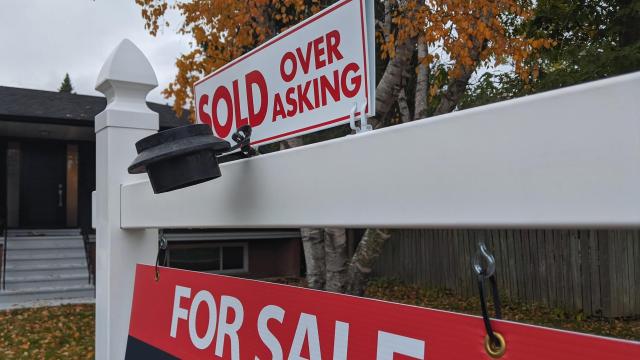For prospective home buyers who weren’t lucky enough to get into the game before the pandemic, the hope of a housing market crash may be the one thing to hold onto following month after month of rising prices and quick sales. Maybe prices will bottom out, we think, suddenly making homeownership more affordable and attainable.
Unfortunately, it’s tough to predict what’s to come. Conditions today are completely different than they were prior to the 2007 housing crisis, so we can’t use that as a benchmark. In fact, many experts believe that we’ll be in a seller’s market for a while: housing supply is still relatively low, and even if price increases don’t stay in double digits, they’re also unlikely to reverse. Rising interest rates that make borrowing more expensive could cool things off a bit, but a crash is probably not on the horizon.
That begs the question: If you want to buy, should you wait it out, possibly for months or years, and hope it gets easier? Or just go for it, knowing you can’t possibly know?
There’s no perfect time to buy a house
There are, of course, risks and rewards to both approaches. As Joe Pinsker writes in The Atlantic, “identifying the perfect time to buy is impossible because perfect timing is clear only in retrospect.”
What that means for you is that if you’re ready to buy, and you can afford to buy, and you want to buy, maybe it makes sense to just go ahead and buy. There might never be “perfect” moment when low interest rates, stable housing prices, market supply, and your financial and emotional readiness converge.
As much as buying in a hot market is a risk, waiting can be a gamble too: you may price yourself out with rising prices and interest rate hikes, also losing the chance to purchase a home you really want now. So instead of trying to strategize or game the market, consider buying a house as just that — buying a house, especially one you plan to stay in for a while.
From Pinsker:
Herbert recommended a different way of thinking about the timing of buying a house, one that I found much more comforting. “You ought to be making this as a housing decision and not an investment decision,” he said. If you’re buying a house, he advised, it should be because you want to live in it for at least five years, and ideally many more — which also will mean that even if prices fluctuate, you have a better chance of your investment appreciating over time. “The longer you stay in the house, the [less] your timing in this particular house-price cycle [will] matter,” he said.
If you do decide to enter the fray, you still do need to keep the financial implications in mind. Don’t go for more than you can actually afford, and don’t necessarily give up contingencies that protect you, the buyer, from a bad deal. There are certain things you can do to get a good deal in a hot market, too.

Leave a Reply
You must be logged in to post a comment.